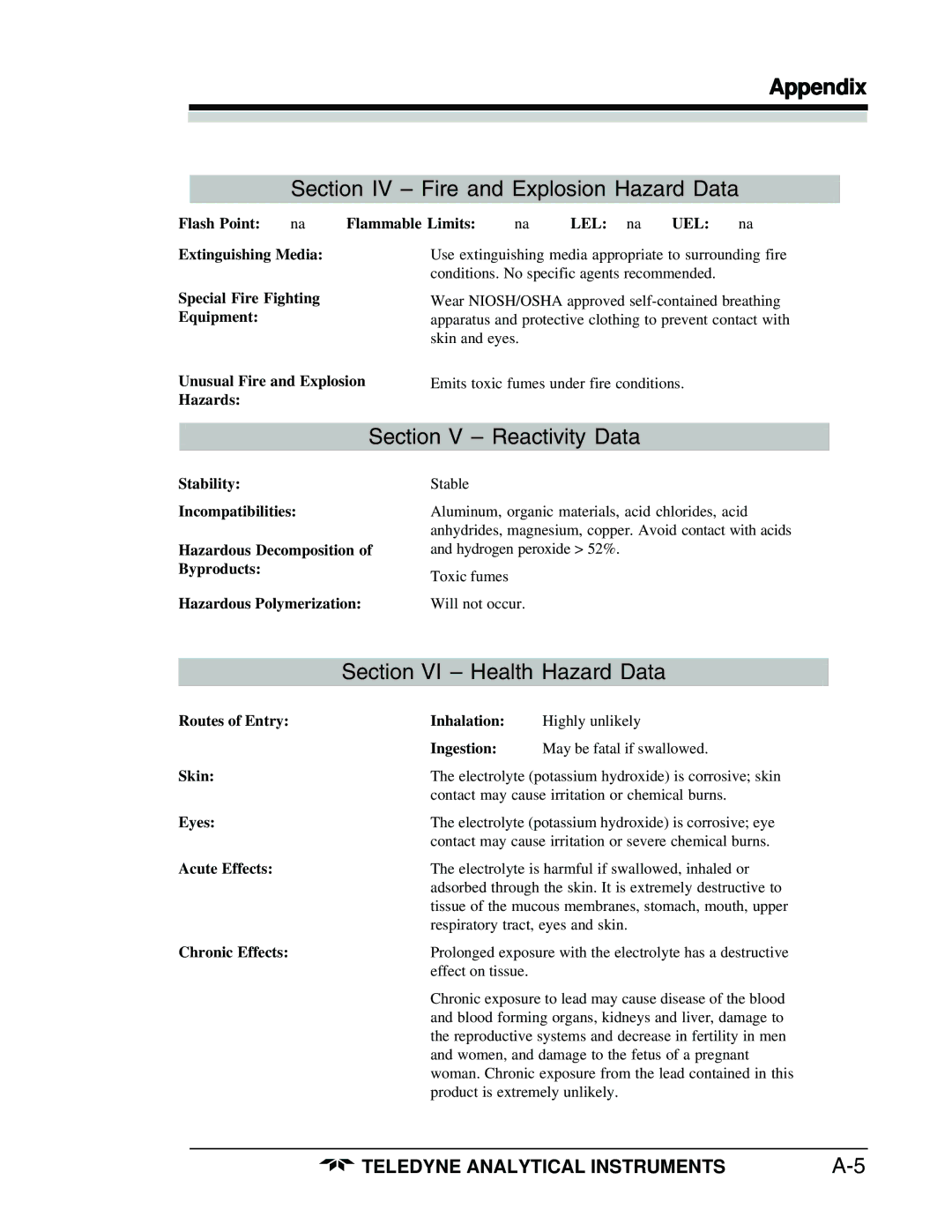
Appendix
Section IV – Fire and Explosion Hazard Data
Flash Point: | na | Flammable Limits: | na | LEL: na | UEL: | na |
Extinguishing Media:Use extinguishing media appropriate to surrounding fire conditions. No specific agents recommended.
Special Fire Fighting Equipment:
Unusual Fire and Explosion Hazards:
Wear NIOSH/OSHA approved
Emits toxic fumes under fire conditions.
Section V – Reactivity Data
Stability:
Incompatibilities:
Hazardous Decomposition of Byproducts:
Hazardous Polymerization:
Stable
Aluminum, organic materials, acid chlorides, acid anhydrides, magnesium, copper. Avoid contact with acids and hydrogen peroxide > 52%.
Toxic fumes
Will not occur.
Section VI – Health Hazard Data
Routes of Entry: | Inhalation: | Highly unlikely |
| Ingestion: | May be fatal if swallowed. |
Skin: | The electrolyte (potassium hydroxide) is corrosive; skin | |
| contact may cause irritation or chemical burns. | |
Eyes: | The electrolyte (potassium hydroxide) is corrosive; eye | |
| contact may cause irritation or severe chemical burns. | |
Acute Effects: | The electrolyte is harmful if swallowed, inhaled or | |
| adsorbed through the skin. It is extremely destructive to | |
| tissue of the mucous membranes, stomach, mouth, upper | |
| respiratory tract, eyes and skin. | |
Chronic Effects: | Prolonged exposure with the electrolyte has a destructive | |
| effect on tissue. |
|
Chronic exposure to lead may cause disease of the blood and blood forming organs, kidneys and liver, damage to the reproductive systems and decrease in fertility in men and women, and damage to the fetus of a pregnant woman. Chronic exposure from the lead contained in this product is extremely unlikely.
TELEDYNE ANALYTICAL INSTRUMENTS |
